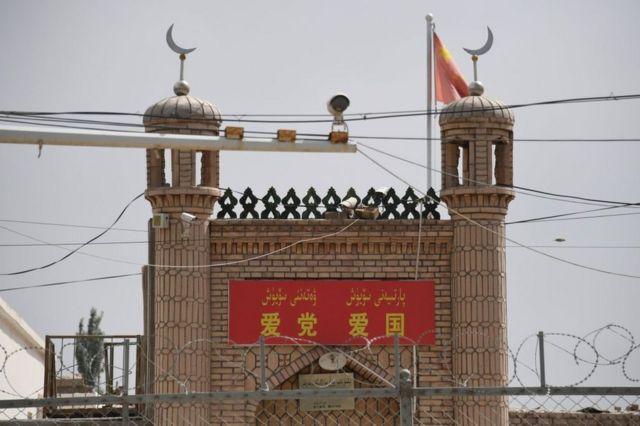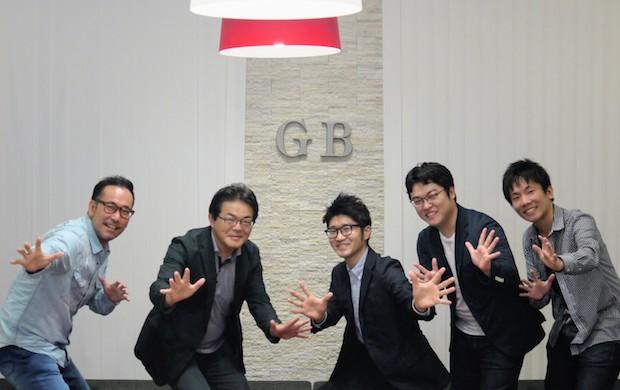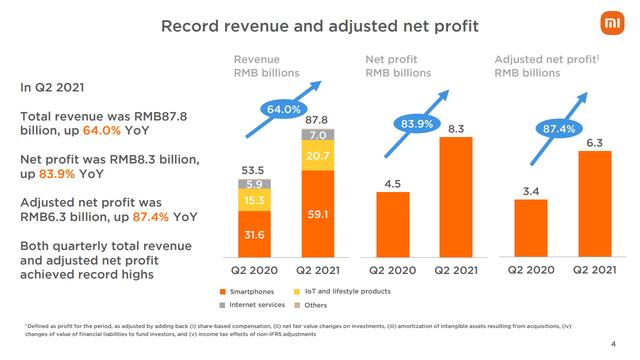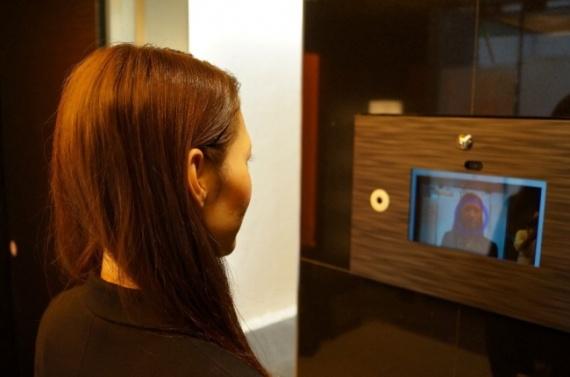ジョール・グンター、BBCニュース
A new survey report that the Chinese government has been imprisoned or detained more than 630 religious stakeholders, including Islamic leaders (Imam), in the West and Xinjiang districts. Summarized.
A survey found that the Uyghur Human Rights Project (UHRP) found that 18 Imam had died immediately after detention or immediately after detention.The BBC obtained this survey from UHRP.
According to the survey, many of the detained Imams were suspected of being "spreading extreme ideas", "gathering people for the purpose of disturbing social order", and instigating the separation movement.。
Imam's relatives said that they were often regarded as crimes, in fact, that they actually preached, held a worship rally, and simply acting as Imam.
In this survey, the UHRP has followed a total of 1046 Imam, with a clue to court records, family testimony, and media articles in public and private databases.The majority was Uyghur.
All 1046 seem to have been detained at some point.However, there are many cases where there is no evidence to confirm it.In the Xinjiang area, the Chinese government strictly control information.
In 630 evidence, at least 304 Imams were sent to prison, not "re -education" facilities, which are closely related to the Uyghur collective restraint.
Regarding the sentence, the trend in Xinjiang can be seen from the records and testimony of the trial.96 % were more than 5 years, 26 % were over 20 years, of which 14 were sentenced to life.
These figures based on the Uyghur activist Abudwari Ayup, the "Xinjiang Victim Database" and "Uyghur Transitional Justice Database" will never reflect the whole.It is very small in Imam, which is estimated to be in Xinjiang.
Nevertheless, the current situation that is specially targeting religious officials in Xinjiang is emerging.It is a content that reinforces the view that China is destroying the Uyghur religious tradition and trying to assimilate the Uyghur into a Chinese culture.
China has denied that perspective.The so -called "re -education" program in Xinjiang is to eradicate extremism in Muslims, such as the Uyghur.
Association between religion and extremist
China is in Xinjiang and is believed to be more than 1 million Muslims such as Uyghur.Xinjiang is located in the northwestern part of China, and is a vast area where various ethnic groups of Churk live.In Xinjiang, China has been accused of infringing human rights such as forced labor, forced infertility surgery, and rape.
Most of the people detained in Xinjiang are sent to the "re -education" facility.In this camp, similar to prison, it is restrained for an irregular period without being charged.On the other hand, some people are officially sentenced to prison.The length and rigor of the sentence have been increasing rapidly since 2017.
There are very few published records related to restraint and prosecution.However, what is published can read how China has linked ordinary religious expressions with extreme ideas and political separationism in Xinjiang.
The arrest notice of Oken Mahmeto (51), an Imam of Xinjiang Hahaha, states that the allegations were "spreading extreme ideas."However, according to his family's testimony that the "Xinjiang Victim Database" was in contact with, he was arrested for losing Friday worship at Islam worship mosque and having a wedding.Say.
Muffmeto's initial notice was that "we have spread people to violate the national laws of marriage, education, and public rule, and spread things related to extreme ideas."It is written.It is said that Mahmeto was sentenced to 8 to 10 years in the trial.
Bakisan Milzan (58), a nationally -approved Imam, who lived in Hami, was also arrested as "spreading extreme ideas."He was captured in August 2018 and was detained in a detention facility in May 2019, in which a 14 -year imprisonment was sentenced to Binguan Urumchi prison.Milzan's family says his only sin was fulfilling his responsibility as Imam.
Avidin Ayup, a famous scholar of Arikatori and Imam, is said to have been guilty.However, the only clues to know the charges are only a few lines, which seem to be in a long court record in another case in which the Han officials have been defendant.The officials were charged with Ayupu's son in a ward of Ayup after the arrest of Ayupu to meet Ayup.In the trial record, Ayup, who was 88 years old in 2017, says "religious extremist."
Ayup's Mei's Mei Muhamad said, "A yupu, a gentle, work -friendly person, has knowledge and culture, and study all the subjects of schools as well as religion.I recommended it. "
Muhamad, who is currently living in the United States, said that nearly 60 relatives had been detained since Ayup was arrested.It is said that her husband and all eight children, Ayup, are included.
In Xinjiang, a crime that is not a crime is used, and the name of extreme ideas is used based on the "weak legal basis".Professor Donald Clark, who studies Chinese law at the University of George Washington, points out.
"Whether to recognize" spreading extreme ideas "as a legitimate sin, is the problem, but the problem is that there is just a fact that the charges are reasonable," said the professor."It's unlikely that this fact is a crime because it is a crime to be a crime, not drinking, not drinking, and visiting abroad."
The Imam's target was "because it has the power to unite local people," said Peter Irwin, a senior program officer of the human rights organization "Uyghur Human Rights Project."
"The country understands Imam's influence, so he has been cautious for a long time," says Irwin."The restraint and imprisonment that has been implemented in recent years is the extremity of repression that has been continued for 30 years for the purpose of the Uyghur culture and religion tightening."
Meanwhile, a Chinese government spokeswoman explained to the BBC that Xinjiang was "blessed with unprecedented freedom over religious religion."

"In Xinjiang, we have promoted" non -express -evolved "efforts and have been firmly controlling the spread of religious extreme ideas. This has greatly contributed to the world's" non -express "initiatives.
The beginning of "re -education"
It is not a new thing that the Turuku ethnic group is targeted in northwestern China.In the 1950s and 1970s, Muslim ethnic minorities were suppressed for a long time.The Koran (Islamic scriptures) were burned, mosques and graveyards were devastated, and traditional clothes and hairstyles were banned.
The 1980s was a relatively open reconstruction period.The damaged mosque was restored and a new mosque was built.Religious festivals were allowed, and the movement of Imam and others was allowed.The Karan was first translated into Uyghur by Uyghur famous famous scholar Muhamad Sari Hazim.
However, in 1990, in Xinjiang and Baren, a riot of the Uyghur armed group occurred.The Chinese authorities have embarked on crackdowns and gradually strengthened their tightening over the next 20 years.Imam, which was considered to be a local influential person, gradually became more likely to show loyalty to the nation.
In the early 2000s, many Imams were forced to learn in the official education course, the predecessor of the current collective "re -education" program.According to Human Rights Watch, a human rights organization, in 2001-2002, about 16,000 religious officials, such as Imam, received political re -education.
One of them is Imam's Troussun.According to his Mei, Trousun was first detained in 2001 for translating the Arabic prayer words into Uyghur because of his fellow believers.
Tursun spent two years in a camp for "re -education through labor."His Mei, outside China, told the BBC that this had been the beginning of the pain by the state of the state for 20 years.Tursun was released from the labor camp in 2002.However, he was constantly being harassed by the police, and he was often taken away to two weeks of learning.He was once again detained in 2005 and was sentenced to four years.
"We didn't have a notice from the court," said Tulson."When my family went to the police station and asked for the uncle's bamboo, the police offered a sentence information and a handwritten note of the prison address."
Tursun released a prison in 2009.However, in 2017, when the representative of the Chen and Communist Party Committee of Chen and Communist Party Committee, a politician known as a hard -line area, was taken again in 2017, in 2017, in 2017.rice field.
In the case of other Imam and others, Tursun said that his family was later targeted by the authorities.Mei has left China by that time.
"I was informed that my uncle and my uncle's wife had been arrested, and after that, I heard that many of my mother and relatives were arrested."I've been searching for information about the whereabouts of everyone, especially my mother, for the last four years."
About a month ago, Trouson's Mei learned that her mother had been sentenced to 13 years and her brother in five years.However, the charges are unknown.Her father was sentenced to life imprisonment in 2008 due to "illegal sermon" and "separationism."
"The mother was just a housewife, but she was sentenced to 13 years," she said."I can't imagine how long her uncle is in prison in prison."
She added that the uncle was targeted because of invisible authority."The country is trying to make the uncles and destroy it. Not only religious leaders, but also those who are proud of the quiet practice of Islam and are proud of being Uyghur.The same is true. The country is working hard to find them and destroy them. "
Some of the detained people have never returned.The 18 Imam, whose name was described in the database, was said to have died shortly after restraint or after the restraint.
Nurgaja Marik, who was the father of two children and graduated from the government -approved Xinjiang Islamic Academy, and served as the editor -in -chief of the religious magazine recognized by the government, died in November 2018.I will.According to unknown reports, Chinese authorities reported to his family, but did not hand over.This is a situation in the same species.Malik's friend and relatives held a funeral in Kazakhstan without a body.
Secret prayer
In the latter half of 2019, in the end of the re -education camp, China said that all of the people were restrained have already released.A considerable number of people were released, and it was alleged that he was set up in his home confinement and in Xinjiang under other management conditions.However, multiple human rights organizations have simply moved to a formal prison.
There are evidence that thousands of people have been in prison from the beginning.According to the New York Times and other reports, the inconvenience rates in Xinjiang in 2017 and 2018.It is said that more than 230,000 people were arrested, nearly 200,000 people.
According to the Chinese government data, 21 % of the total number of criminal suspect arrests throughout China in 2017 were arrested in Xinjiang.Xinjiang's population is only about 1.5 % of China as a whole.
The formal sentence, unlike "re -education," should be able to record a record.However, Jean Bunin, a "Xinjiang Victim Database", says that the court record is "no matter where you are."
According to Bunin, Xinjiang recorded 74,348 criminal cases in 2018, but only 7714 could confirm the criminal trial.China has rarely found the ruling of crimes that are often applied to Uyghur religious stakeholders, such as "spreading extreme ideas" and "separation movements", so China records these records.It can be seen that it is intentionally removed.
There are some official records that are in detail.From them, it is surprising that the crime is harmless.
In one of the rulings issued in 2018, Ismile Sidik (then 55), a Uyghur peasant, who had been prisoned in 10 years in prison for 10 years, as "spreading extreme ideas,In order to pray for Islam, it is difficult to find and used a simplified method. "The ruling is now deleted from the government's record, but is stored by the Xinjiang Victim Database.
Sidiku only prayed secretly in prison.He was reported to a companion and was charged with "illegal religious activities" and "ethnic hatred and discrimination."The latter was applied to the loud shout that Sidiku should not be confident with Uyghur.He will be released in 2038.
It is more likely that those detained in detention facilities instead of prison will be released in a few months or years.But in Xinjiang, liberation does not mean freedom.
Uyghur Memeto, who escaped from Xinjiang, told the BBC that his father, who had been in peace for many years, was detained in 2017.He has been hearing his family's recent status from an acquaintance in Xinjiang in recent years.The woman has a weak relationship with Memeto's family, and she is said to have been relieved to send a message abroad with a Chinese message app and advertising.Nevertheless, Memeto had almost no information about his father's condition for four years.
However, recently, Memeto heard that his father was released.And he wanted to talk for several years.He asked an acquaintance woman to find her father and use her woman to talk.
On the promised day, Memeto received a message from an acquaintance.She found her father, but she said she shouldn't talk to her son.After her message arrived, the acquaintance woman blocked Memeto and couldn't get in touch again.
Some names have been modified.










